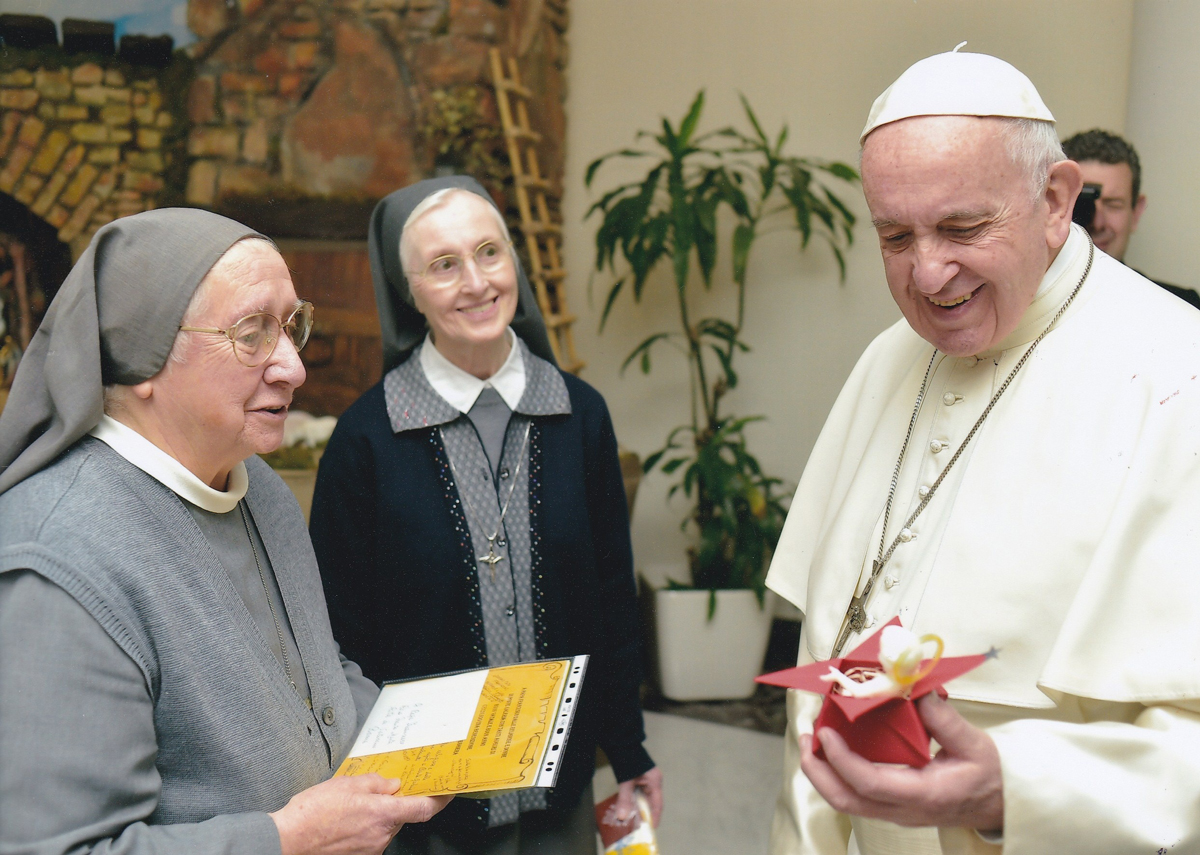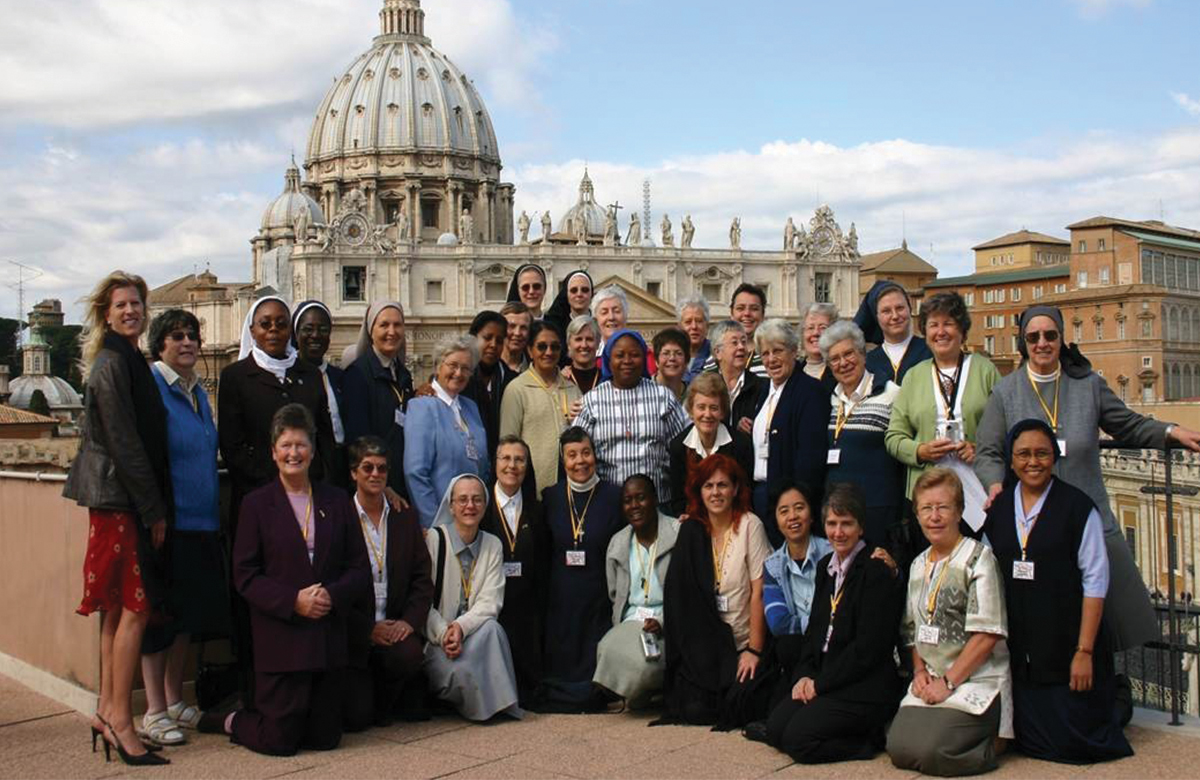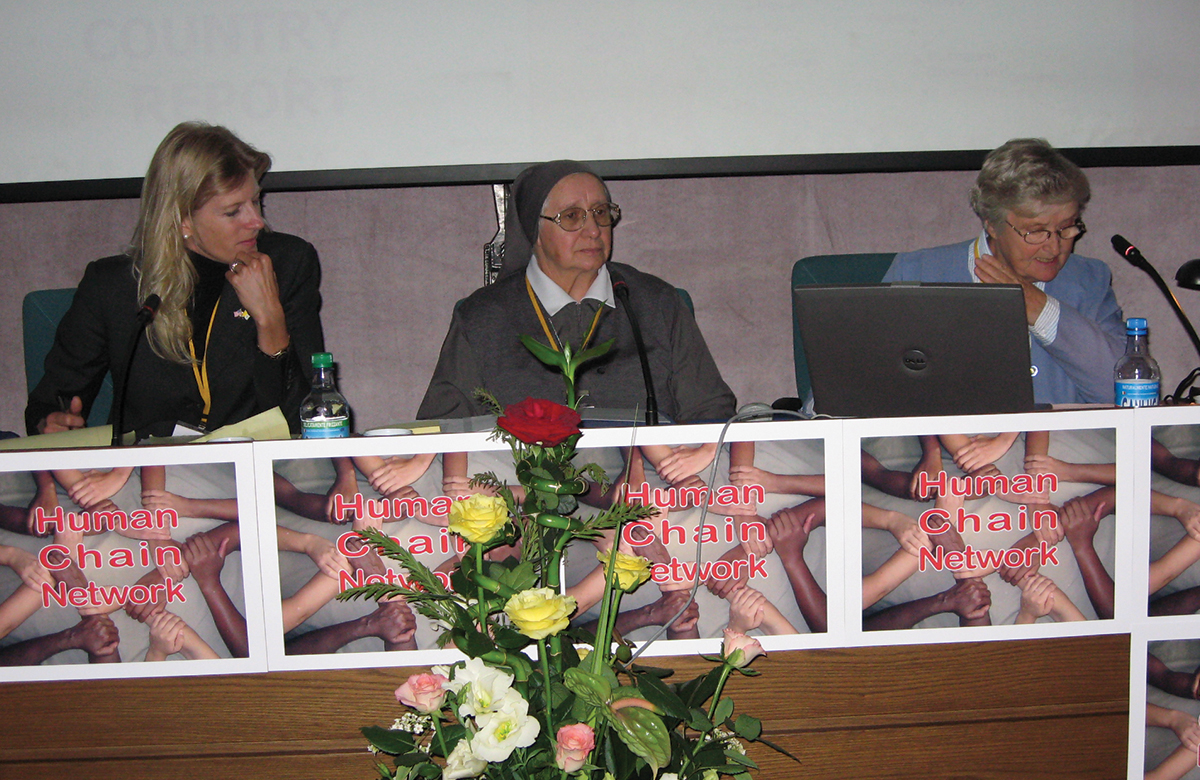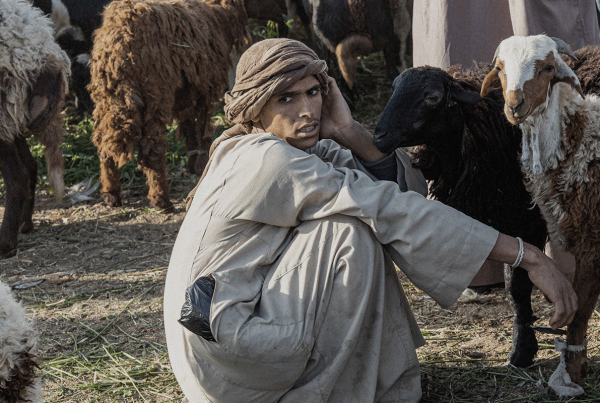The following interview was conducted by TER’s Vice President of Communications, Amy Roth Sandrolini. She asked her old friend, Sr. Eugenia Bonetti, a Roman Catholic nun, several questions about St. Josephine Bakhita, a Sudanese-Italian Canossian nun, who as a child was forced into 12 brutal years of slavery in Sudan.
In 2000, Bakhita was declared a saint by the Catholic Church. February 8 is her Feast Day, observed in the Catholic Church—and now around the world—as an International Day of Prayer and Reflection for victims of modern-day slavery.
Amy and Sr. Eugenia met in Rome, Italy, in 2003, when Amy was serving at the U.S. Embassy to the Vatican. The two became fast friends and collaborators on programs to train nuns to identify human trafficking and convert more than 100 convents across Italy into safe houses for victims.
St. Bakhita Day
“Together Against Human Trafficking”
AMY:
What moves or inspires you most about St. Josephine Bakhita’s story?
SR. EUGENIA:
Her story moves me deeply. She was just a child when slave traders abducted her. She was sold multiple times, beaten savagely. I am moved by her courage, determination, and simplicity. She took that terrible story and turned it into a simple story in the end—a story of forgiveness.
AMY:
You spent much time in Africa as a young nun; do you feel anything in common with St. Bakhita?
SR. EUGENIA:
Like her, Africa taught me a lot. It taught me how to live a simple life, in contact with nature, which led me to appreciate the divinity and healing that is all around us. Both of us had a strong missionary drive throughout our lives. It it often written about her, “her mind was always on God, and her heart in Africa.” In this, we are just the same.
AMY:
Josephine Bakhita survived 12 brutal years as a slave, was brought out of Sudan to Italy—where her life changed. There she found freedom and rediscovered God. She became a nun, was beatified in 1992, and canonized by Pope John Paul II in 2000. You were so inspired by her story, you proposed to the Vatican to use her Feast Day as a way to bring attention to the plight of victims of modern-day slavery. How did you make that happen?
SR. EUGENIA:
This story starts with Pope Francis. The first time I met him, three other nuns were with me. In our conversation, I expressed to him my deep desire to have an international day of prayer and reflection every year to highlight the victims of modern-day slavery. For years, I have worked on the streets of Italy, in a detention center outside of Rome, in convents turned safe houses, with thousands of young women—many with children, the result of gang rape—who were enslaved as prostitutes. The Pope consulted with other members of the Vatican and sent me a letter saying to go ahead and prepare for the first celebration of St. Bakhita Day on February 8, 2013. This was my dream and an answer to prayer.

AMY:
How widely is St. Bakhita Day celebrated now?
SR. EUGENIA:
Today marks the sixth celebration, and since the first, this special day of prayer and reflection is widespread now—even in America. It is observed with many prayer vigils, information and conferences on human trafficking, and celebrations for the progress that has been made on behalf of and by victims of modern-day slavery. There is always a theme or motto; this year the theme is “Together Against Human Trafficking!”
AMY:
What are your hopes for St. Bakhita Day in the future?
SR. EUGENIA:
One day, I want all dioceses and parishes all over the world to observe St. Bakhita Day, as a way to come together—globally, because human trafficking is a global issue—to sensitize people to the unspeakable scourge of human trafficking. I want everyone—not just Catholics or not just Christians—to know that modern-day slavery sexually enslaves millions of young people, destroying their life and their youth.
AMY:
I work for The Exodus Road, a nonprofit that collaborates with law enforcement, goes into brothels or massage parlors or online to find victims and free them—while also arresting their perpetrators. Knowing Josephine longed to be free, but no one came to rescue her, what can you say about intervention work like that done by The Exodus Road?
SR. EUGENIA:
This type of intervention work is essential. Traffickers are very clever and connected. They have complicated methods for finding and keeping humans like prey, especially the very young girls, the very innocent, the desperate and vulnerable. Therefore, as I have always said in our work, Amy, we must come together so that we can be equally as clever and connected– to stop traffickers and to rescue victims from the people buying and using them.


AMY:
At The Exodus Road, we say “justice is in the hands of the ordinary,” which means everyone has a role to play in bringing freedom to victims of modern-day slavery. What do you think St. Bakhita would say about that idea?
SR. EUGENIA:
I feel St. Bakhita would agree entirely, as do I. Each one of us has a specific role to play. Those of us in freedom must use that freedom to free others. We have been created in the image of God, with human dignity, with the right to live in freedom, and not to be enslaved for someone else’s personal gain or interest.
AMY:
Why is St. Bakhita’s story important to share with people today?
SR. EUGENIA:
Because in her life and simplicity, St. Bakhita helps us to understand our great value as human beings, created with a purpose and commitment in our life, where we can endure much, forgive much, and change the world.







